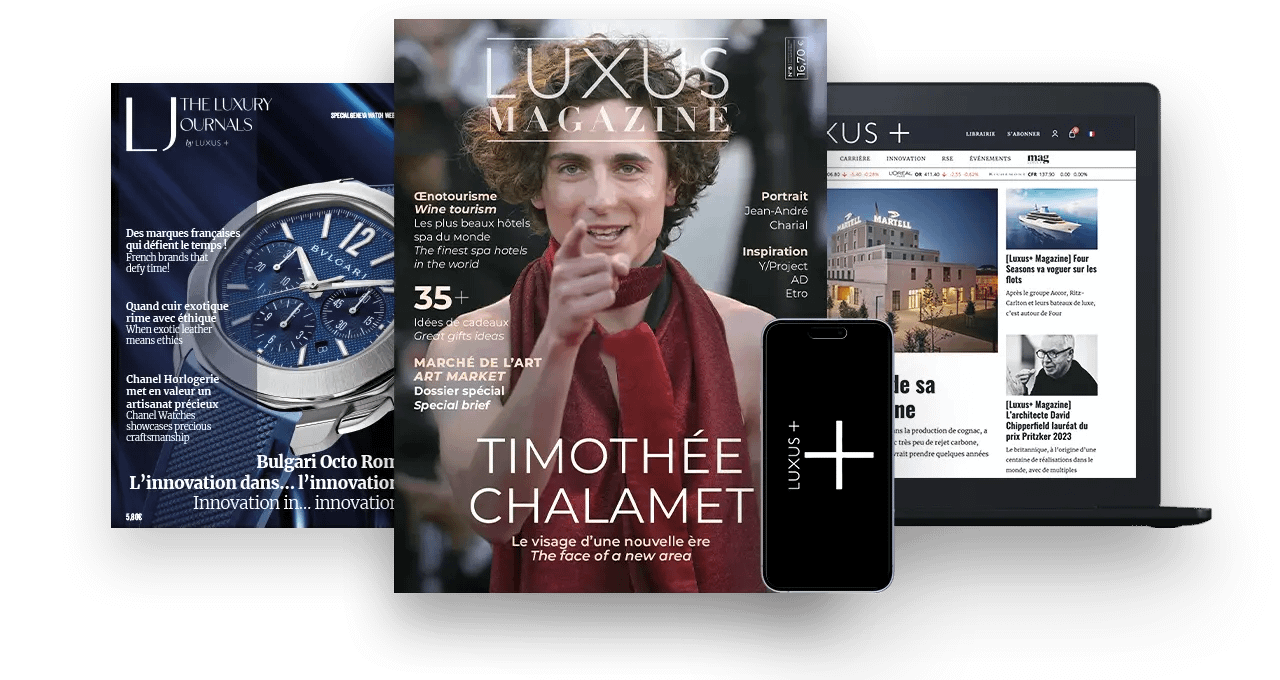HSBC’s “Cruel Summer” report finally predicts organic growth for luxury goods of 2.8%, instead of the 5.5% initially forecast. But it also announces a return to a better trend in 2025, with growth of 7%, albeit on a weaker basis of comparison.
2024 will not be a vintage year for luxury goods…
The latest HSBC report on the sector, dubbed “a Cruel Summer” (a nod to one of singer Taylor Swift’s hit songs), has drastically revised downwards its previous estimates for the second half of 2024.
Looking at the performance (or lack thereof…) of eight global luxury stalwarts (Burberry, Hermès, Kering, LVMH, Richemont, Swatch, Moncler and Prada), the bank’s analysts now expect average organic growth of 3% in the third quarter and 4% in the fourth.
For the full year, the outlook for organic growth is now just 2.8%, instead of the 5.5% initially envisaged.
Sixth worst year in 20 years
This would make 2024, according to HSBC, “the sixth worst year for the luxury goods sector in the last 20 years”. Even if we remain on a growth trend, and therefore on a financial year without comparison with the annus horribilis of 2020, marked by a plunge of almost 20%, and to a lesser extent, 2009, with an 8% drop.
“ We no longer expect a return to double-digit growth in the third or fourth quarter of 2024, despite a much easier basis for comparison. Our new forecasts take into account the weak macroeconomic environment and the flow of negative sectoral news received over the summer,” explains the report.
The average forecasts calculated by HSBC, however, conceal considerable disparities.
“ Polarization should continue to be stronger than ever, as the 3% average organic growth we forecast for the third quarter of 2024 is a mix of strong declines (Gucci -18% … Burberry -10%) and fine growth (Hermès +10%, Prada group retail +21%) “ says HSBC. And this compared with a third-quarter 2023, which was itself “the lowest basis of comparison of the year for the eight companies covered” by the report.
Large gap
This projection is in line with the results for the first half of the year.
While Lvmh, Kering, Salvatore Ferragamo, Burberry and Lanvin did not fare so well, with double-digit falls in their results, Hermès and Prada posted enviable performances, indicating that the appeal of these two Houses remained strong.
HSBC’s gloomy outlook for 2024 is obviously linked to the slowdown in two key luxury markets, China and the USA, and to uneven performances in Europe.
Chinese, Americans and Europeans spend less
In the Middle Kingdom, consumers are “holding back on spending despite solid savings ‘, while Americans, particularly those with an aspirational profile, ’seem to be priced out of the market, or at least affected by inflationary pressures and a high interest rate environment”.
Europeans, meanwhile, have adopted a wait-and-see attitude, “probably victims of ‘greedflation’, with many brands having increased their prices after the covid crisis” without any real inflationary justification.
Japan, the only mature market still doing well, is benefiting from demand for luxury goods that “has remained very strong, stimulated by Chinese tourism, other Asian tourist flows and also a little American tourism”.
HSBC’s analysis is corroborated by other recently published studies, which show that Chinese and American consumers are less keen on ultra-high-end products.
No upturn in China for three or four years!
At Barclays Bank, Wendy Liu and Carole Madjo, two analysts specializing in China, have indicated that “the upturn in this market will not occur for three to four years! They pointed out that “sentiment on the ground is much more cautious than it was six months ago” and that “it is now clear that Chinese weakness is structural”.
In a similar vein, investment firm TD Cowen conducted a survey of 2,000 Chinese consumers on their financial outlook, spending preferences and expectations in a wide range of categories, including luxury goods.
Against a backdrop of relatively stable spending intentions, luxury goods stand out as one of the categories on which Chinese consumers plan to spend less. Of the minority who plan to reduce their spending in 2024, 46% plan to do so on luxury goods.
Admittedly, around 30% of the Chinese surveyed still intend to buy luxury goods over the next six months, a more than respectable percentage in a population of over 1.4 billion! The authors of the study temper this figure, however, by pointing out that declared intentions don’t always materialize…
Caution among affluent consumers across the Atlantic
Across the Atlantic, a comparison ofAffluent Consumer Research Company (ACRC) surveys conducted last June and September among 400 and 250 affluent American consumers respectively (with an average household income of around $300,000 and a net worth of $2.3 million, excluding the value of their principal residence) also points to increased caution among the latter.
In June, only 9% had made no luxury purchases in the past year. In September, this figure had almost doubled to 17%.
And for the next 12 months, 28% said last September they planned to spend less on luxury goods, and an equal proportion planned to make no purchases in this segment. Only 16% planned to spend more.
While we don’t expect a radical decline in luxury spending, growth is likely to be modest as consumers focus on value and longevity rather than pure luxury”.
A note of hope
Despite the gloomy outlook for 2024, HSBC’s latest report offers a note of hope for the luxury goods industry.
Its analysts forecast 7% growth for the sector in 2025. Luxury goods are expected to return to high single-digit growth “as early as the first quarter of 2025” and “probably double-digit growth in the second quarter of 2025 ”. In fact, “the lower the base, the stronger the rebound”.
After the rain, the fine weather…
Read also > Artificial intelligence: luxury continues its transformation in 2024
Featured Photo: © Unsplash







































